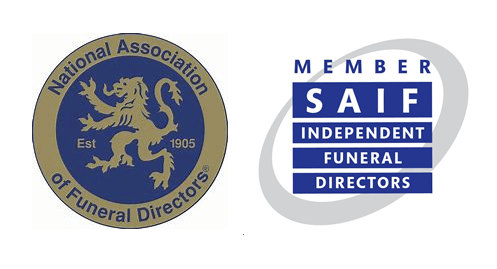Family Run Funeral Directors Firm
John Short and Son can provide the support you need 24 hours a day, seven days a week, 365 days a year.
Funeral arrangements can be made as soon as the family are ready to contact ourselves at John Short and Son Funeral Directors.
A loved one can pass away in a variety of different circumstances, here is a simple guide:
Death in a Nursing Home or Care Home
The on-site nurses will verify the death and contact the GP to visit the building so that the death can be legally certified. At this point, we can attend to transport your loved one from the nursing home to our funeral home.
Death in a hospital or hospice
The Bereavement Office at the hospital or nurses at the hospice will arrange for the doctor that last treated your relative or friend to certify the death. Hospitals have mortuaries on-site until you can appoint a funeral director.
Death in a private residence
An ambulance technician or district nurse can verify the death but you may need to contact the deceased's GP or care nurse. After that, and when you are quite ready, the deceased can be removed to our funeral home.
Medical certificate
The doctor who last treated the person who has died should issue a medical certificate of death. This confirms the cause of death and means that a relative can legally register the death at a Register Office. The doctor will advise when and where this may be collected.
Currently due to COVID 19 restrictions all correspondence with doctors and the registrars is done over the phone or online.
If a doctor cannot determine a cause of death or if the deceased hasn’t been treated by that doctor within the last 14 days, then the Coroner may become involved.
Involvement of a coroner
If a doctor cannot issue a medical certificate of death or if the death is sudden or unexpected, the coroner will investigate.
A coroner looks into the deceased’s medical records and carries out a post-mortem examination or toxicology tests if required.
If these examinations still do not reveal a clear outcome, an inquest may be carried out and the body of the deceased will be released to the family, although the family will not be able to register the death until the conclusion of the inquest, but will be issues with an 'Interim' certificate to enable the funeral to take place.
Who can register a death?
The people who can register a death include relatives present at death, those who cared for the deceased during their last illness or those who lived in the same property as the deceased where the death occurred.
A non-relative who was present at the death can also register the death.
Registering a death
A death must be registered within five days unless the Coroner is involved or unless you cannot obtain a medical certificate of death. To register you will take the medical certificate, with the patient's medical card (if available), birth certificate and marriage certificate to the registrars.
The death should be registered at a Register Office within the area where the deceased passed away and you will be issued documents.
You can also register a death by declaration at a register office closer to where you live, but you will possibly have to wait for the documentation for longer as this will need to be filled out by the register office nearest to where your relative died and that paperwork will be sent on to your local register office.
This paperwork includes a death certificate and copies should be obtained so that you can close bank accounts, insurance policies etc.A burial or cremation will then be authorised through the issue of a Disposal Certificate, or a Green Form, which you will need to bring to the funeral directors for the funeral to take place and if the death occurs in hospital we will need the green form to bring the deceased into our care.
What information do you need to register a death?
Details you will need include the date and place of death and birth, the full name including the maiden name if appropriate, occupation, address, the deceased’s pension details and whether that person was married. Details of the surviving widow or widower are also required.
Our Chapel of Rest
You will be welcome to visit our chapel of rest anytime between 9.30 - 4.30 Monday to Friday by appointment. However, until we have received the Green form and the relevant doctors legal paperwork is complete we are unable to make any preparations to the deceased. Therefore if you do wish to visit the chapel before this is complete, the deceased will be exactly as they were before being bought in to our care.




